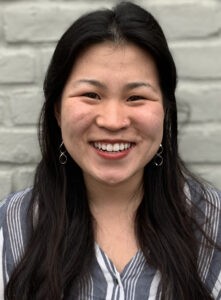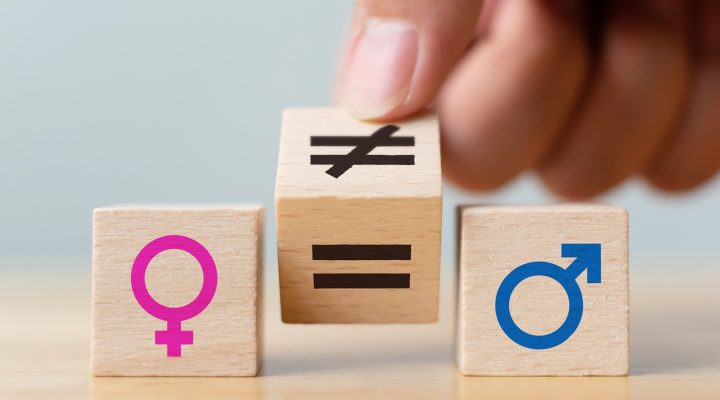It is encouraging and difficult to digest the information in the report on the State of Women in Baptist Life.
One set of numbers that caught my eye is dedicated to the number of women ordained in the Baptist tradition. While the report offers space for grace indicating that the “true total of ordinations in this time period is likely much higher,” the given numbers are still worth deep consideration.
I grew up in Alabama, where only five Baptist women are reported to have been ordained between 2016 and 2021. Five women in the span of six years.

Amanda Clark
You can count the number of women ordained in Alabama on one hand. And something about that number stirs in me feelings of frustration and even some guilt. This number reveals that Alabama — among other states and among Baptist churches as a whole — still has a long journey ahead to bear witness to women in ministry through ordination and fully recognizing them as people with the same spiritual agency and leadership as their male counterparts.
This number reveals my own struggle seeking ordination and recognition as a minister in a denomination where I was not always able to witness adult women pave a way for me to hope for something bigger. When it came time for me to seek my own ordination, I was not even sure if any church would support me, which shows that I, too, play a role in the generational guilt and stigma that is found when it comes to the topic of ordaining women.
“When it came time for me to seek my own ordination, I was not even sure if any church would support me.”
For some people, ordination may not stand as a significant event. However, anyone who has gone through the process of seeking ordination would hold a different view. My own journey for ordination had a rough start, as one church I hoped would consider me for ordination turned me away. It was odd because this church hoped I still would serve within different ministries, and many parents entrusted me with ministering to their students. And yet, I could not be recognized as “pastor” within that congregation because I was a woman.
The experience I had probably sounds familiar to many other women who served in a congregation, received training and education from a theological institute or program, but still were turned away upon the request of ordination due to a specific kind of hermeneutic.
While no church is perfect, I am thankful for the ways in which the church I grew up in, a Baptist church, has stood as a beacon of hope for women pursuing roles to serve in the church. These roles may not always have held the title of “minister” or “pastor” or “reverend,” but I am joyful as I recount the many women who ministered to me and cared about my spiritual formation from a young age.
In this church, I witnessed women serve as deacons and teachers. I witnessed this church cross a milestone in its own history as they invited, encouraged and supported the first African American woman to preach from the pulpit. And in this summer alone, I stand as one of six women who are and will be ordained through this church.
As the field of ministry in Baptist life continues to develop and mature, I earnestly hope for a day when the consideration of ordaining women is no longer a major concern. Baptist churches encompass a large spectrum of thoughts and ideas, and I sincerely pray the number of ordinations for women continues to grow.
I yearn for a day when a young girl can share in her church that when she grows up, she wants to be a pastor and her entire church family unites behind her with love and support. I pray for the young woman seeking ordination now to be encouraged and uplifted by the shifting tides as other women are being fully recognized by some Baptist churches. And I delight in the prospect that the trends found in this report let every Christian know there are Baptist congregations ready to stand as beacons of empowerment for women who are called to serve by the Triune God.
Amanda Clark is a graduate of George W. Truett Theological Seminary. She currently serves as an associate pastor at Kingwood Christian Church in Kingwood, Texas.
Related articles:
This is my body | Opinion by Hannah Coe
Women in ministry face daily slights that add up, BWIM leaders explain
Annual report on Baptist women in ministry finds some gains but serious losses due to COVID


